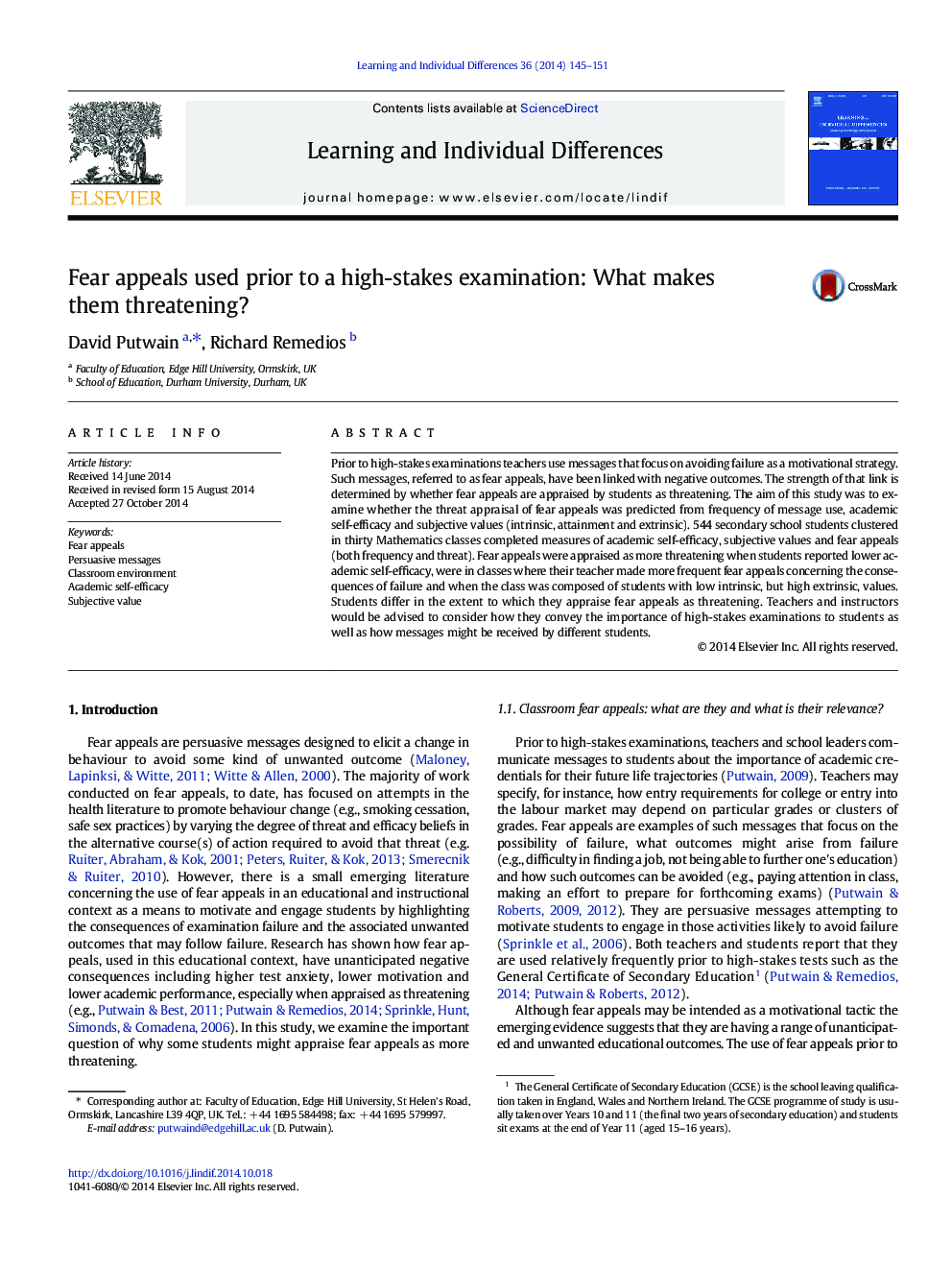| Article ID | Journal | Published Year | Pages | File Type |
|---|---|---|---|---|
| 6845026 | Learning and Individual Differences | 2014 | 7 Pages |
Abstract
Prior to high-stakes examinations teachers use messages that focus on avoiding failure as a motivational strategy. Such messages, referred to as fear appeals, have been linked with negative outcomes. The strength of that link is determined by whether fear appeals are appraised by students as threatening. The aim of this study was to examine whether the threat appraisal of fear appeals was predicted from frequency of message use, academic self-efficacy and subjective values (intrinsic, attainment and extrinsic). 544 secondary school students clustered in thirty Mathematics classes completed measures of academic self-efficacy, subjective values and fear appeals (both frequency and threat). Fear appeals were appraised as more threatening when students reported lower academic self-efficacy, were in classes where their teacher made more frequent fear appeals concerning the consequences of failure and when the class was composed of students with low intrinsic, but high extrinsic, values. Students differ in the extent to which they appraise fear appeals as threatening. Teachers and instructors would be advised to consider how they convey the importance of high-stakes examinations to students as well as how messages might be received by different students.
Related Topics
Social Sciences and Humanities
Psychology
Developmental and Educational Psychology
Authors
David Putwain, Richard Remedios,
